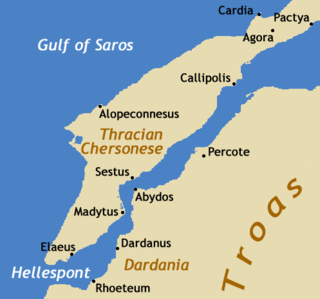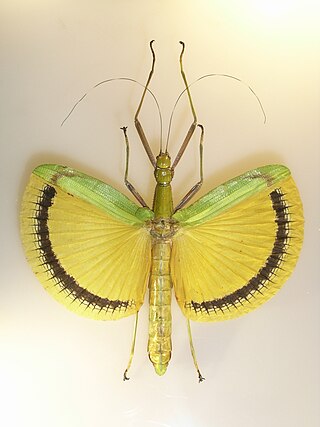AD 36 (XXXVI) was a leap year starting on Sunday of the Julian calendar. At the time, it was known as the Year of the Consulship of Allenius and Plautius. The denomination AD 36 for this year has been used since the early medieval period, when the Anno Domini calendar era became the prevalent method in Europe for naming years.
The 1690s BC was a decade lasting from January 1, 1699, BC to December 31, 1690, BC.
The 1570s BC is a decade that began on January 1, 1579 BC, and ended on December 31, 1570 BC.
Year 409 BC was a year of the pre-Julian Roman calendar. At the time, it was known as the Year of the Consulship of Cossus and Medullinus. The denomination 409 BC for this year has been used since the early medieval period, when the Anno Domini calendar era became the prevalent method in Europe for naming years.
The naval Battle of Cynossema took place in 411 BC during the Second Peloponnesian War. In the battle, an Athenian fleet commanded by Thrasybulus and Thrasyllus, although initially thrown on the defensive by a numerically superior Spartan fleet, won a narrow victory. This victory had an impact out of proportion to its tactical significance, coming when Athens' traditional democratic government had been replaced by an oligarchy and an Athenian defeat could have ended the war. The newly confident Athenian fleet proceeded to win two more victories in the Hellespont in quick succession, the second being the dramatic rout at Cyzicus, which ended the immediate Spartan threat to Athens' Black Sea lifeline.
Tiberius Claudius Balbillus Modestus, more commonly known as Tiberius Claudius Balbilus, was a distinguished Ancient Roman scholar, politician and a court astrologer to the Roman emperors Claudius, Nero, and Vespasian.
Thrasyllus of Mendes, also known as Thrasyllus of Alexandria and by his Roman name Tiberius Claudius Thrasyllus, was a Greek Egyptian grammarian and literary commentator. Thrasyllus was an astrologer and a personal friend of the Roman emperor Tiberius, as mentioned in the Annals by Tacitus and The Twelve Caesars by Suetonius.

In classical architecture, the term attic refers to a storey above the cornice of a classical façade. The decoration of the topmost part of a building was particularly important in ancient Greek architecture and this came to be seen as typifying the Attica style, the earliest example known being that of the monument of Thrasyllus in Athens.
Thrasyllus was an Athenian strategos (general) and statesman who rose to prominence in the later years of the Peloponnesian War. First appearing in Athenian politics in 410 BC, in the wake of the Athenian coup of 411 BC, he played a role in organizing democratic resistance in an Athenian fleet at Samos. There, he was elected strategos by the sailors and soldiers of the fleet, and held the position until he was controversially executed several years later after the Battle of Arginusae.

The Caesars is a British television series produced by Granada Television for the ITV network in 1968. Made in black-and-white and written and produced by Philip Mackie, it covered dramatic territory similar to that of the later BBC adaptation of I, Claudius, dealing with the lives of the early emperors of Ancient Rome, but differed in its less sensationalist depictions of historical characters and their motives; in particular, the Emperor Tiberius is portrayed much more sympathetically.

Elaeus, the “Olive City”, was an ancient Greek city located in Thrace, on the Thracian Chersonese. Elaeus was located at the southern end of the Hellespont near the southernmost point of the Thracian Chersonese in modern-day Turkey. According to the geographer Scymnus, Elaeus was founded by settlers from Ionian Teos, while the Pseudo-Scymnus writes that it was a colony of Athens and was founded by Phorbas
Halcyon is a short dialogue attributed in the manuscripts to both Plato and Lucian, but the work is not by either writer. Favorinus, writing in the early second century, attributes it to a certain Leon, as did Nicias of Nicaea.

Necrosciinae is a subfamily of the stick insect family Lonchodidae, with its greatest diversity in South-East Asia.
Claudia Capitolina was an Egyptian Greek woman who lived in the Roman Empire, in the 1st century and possibly in the 2nd century. She was a Princess of Commagene by marriage to Gaius Julius Archelaus Antiochus Epiphanes.

I, Claudius is a six-part 2010 radio adaptation of Robert Graves' 1934 novel I, Claudius and its 1935 sequel Claudius the God. Broadcast as part of the Classic Serial strand on BBC Radio 4, it was adapted by Robin Brooks and directed by Jonquil Panting, with music composed by David Pickvance. Claudius was played by Tom Goodman-Hill and the series' cast is also notable for including Derek Jacobi, who played Claudius in the 1976 BBC TV adaptation of the same works, now in the role of Augustus. The series was released as a BBC Audiobook on 6 January 2011. It won the 2012 Audie Award in the "Audio Dramatization" category.
Lucius Ennius was a Roman Eques who lived in the second half of the 1st century BC and first half of the 1st century.
Ennia Thrasylla was a Roman noblewoman who lived in the 1st century AD in the Roman Empire.
Dercyllides was an ancient Greek Platonist philosopher. There survive only quotations or paraphrases of his work in later writers, no complete works.




